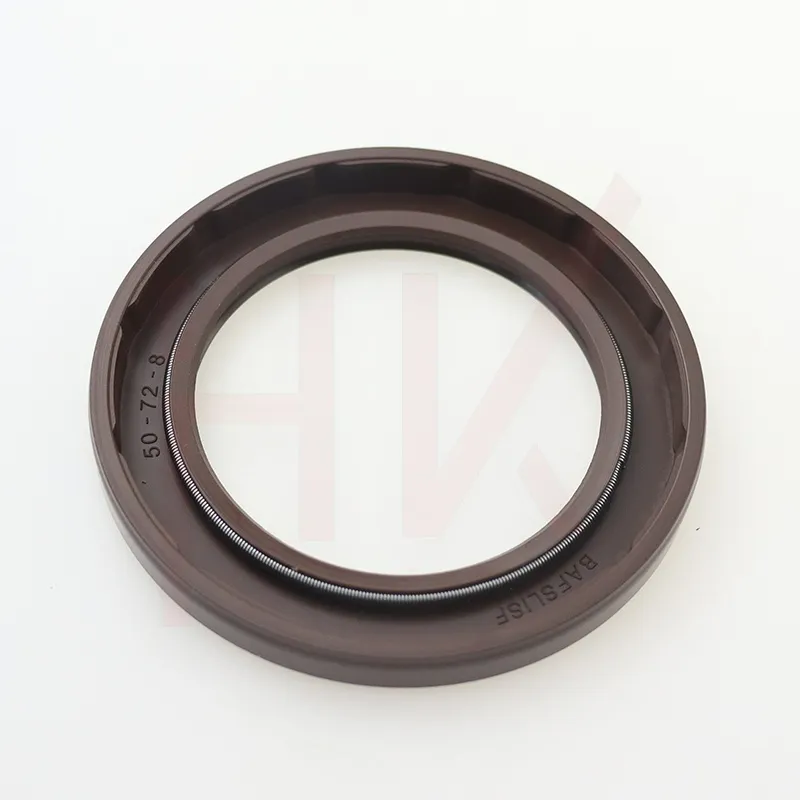Nov . 23, 2024 14:30 Back to list
oil seal high pressure
Understanding Oil Seals and Their Role in High-Pressure Applications
Oil seals, often referred to as radial shaft seals or simply seals, are mechanical devices designed to prevent the leakage of lubricants and other fluids from rotating shafts in various machinery. These seals play a critical role in maintaining the efficiency and longevity of equipment, especially in high-pressure environments. In this article, we will explore the function, types, and significance of oil seals in high-pressure applications.
The Function of Oil Seals
Oil seals have several primary functions
1. Leak Prevention The most critical role of an oil seal is to prevent the escape of lubricants, which ensures that machinery operates efficiently by minimizing friction and wear.
2. Contaminant Exclusion In addition to preventing the loss of lubricants, oil seals also keep contaminants such as dirt, dust, and moisture from entering the machinery, protecting the internal components from damage.
3. Pressure Maintenance In high-pressure applications, oil seals are essential for maintaining the required pressure within systems. They help prevent blowouts and ensure that pressure does not affect the performance of the machinery.
Types of Oil Seals
Oil seals come in various types, tailored for different applications and environments. The most common types include
1. Single Lip Seals Utilizing a single sealing lip, these are often used in low-pressure applications.
2. Double Lip Seals Featuring two sealing lips, these seals provide enhanced protection against leakage and contaminants, making them suitable for high-pressure applications.
3. Spring-Loaded Seals Incorporating a spring mechanism, these seals maintain constant contact with the shaft, thereby improving sealing efficiency and compensating for wear over time.
4. PTFE Seals Made from polytetrafluoroethylene, these seals excel in high-temperature and high-pressure environments due to their excellent chemical resistance.
5. Custom Seals For specialized applications, manufacturers can create custom seals that meet specific size, material, and performance requirements.
oil seal high pressure

Materials Used in Oil Seals
The material used in oil seals is crucial for their performance, especially in high-pressure environments. Common materials include
1. Nitrile Rubber (NBR) Known for its excellent oil resistance, NBR is widely used in oil seals for moderate temperature and pressure conditions.
2. Fluoroelastomers (FKM) These materials offer superior resistance to heat, chemicals, and pressure, making them perfect for severe conditions.
3. Polyurethane With high wear resistance and elasticity, polyurethane seals are suitable for dynamic sealing applications.
4. Silicone Flexible and stable over a wide temperature range, silicone oil seals are effective in extreme conditions, though they may not have the same mechanical strength as other materials.
Applications of High-Pressure Oil Seals
High-pressure oil seals are employed in a variety of industries, including
1. Automotive Used in engines, transmissions, and differentials to prevent lubricant leakage.
2. Hydraulics Essential in hydraulic pumps and cylinders, which operate under high pressure.
3. Aerospace Critical in aircraft engines, where maintaining pressure integrity and preventing fluid leaks is vital.
4. Oil and Gas Used in drilling and production equipment to ensure operational reliability in challenging environments.
Conclusion
In high-pressure applications, oil seals are indispensable components that ensure operational efficiency and reliability. Understanding their types, materials, and functions empowers businesses and engineers to select the right seals for their specific needs. Choosing the correct oil seal not only enhances performance but also prolongs the lifespan of machinery, ultimately leading to cost savings and improved safety. As technological advancements continue, the development of high-performance oil seals will remain integral to machinery design in high-pressure scenarios, underscoring their importance in modern engineering practices.
-
Unlocking the Potential of Hydraulic Systems with Essential Sealing Solutions
NewsAug.06,2025
-
Unleash the Power of Your Hydraulic Systems with Our Premium Seal Kits
NewsAug.06,2025
-
Specialized Hydraulic Seal Kits for Breakers, Pistons, and Presses
NewsAug.06,2025
-
Revitalize Hydraulic Systems with Premium Repair and Seal Kits
NewsAug.06,2025
-
Fortify Your Cylinders with Premium Sealing Solutions
NewsAug.06,2025
-
Elevate Hydraulic System Reliability with Specialized Seal Kits
NewsAug.06,2025
-
TCN Oil Seal Metal Ring Reinforcement for Heavy Machinery
NewsJul.25,2025
Products categories
















